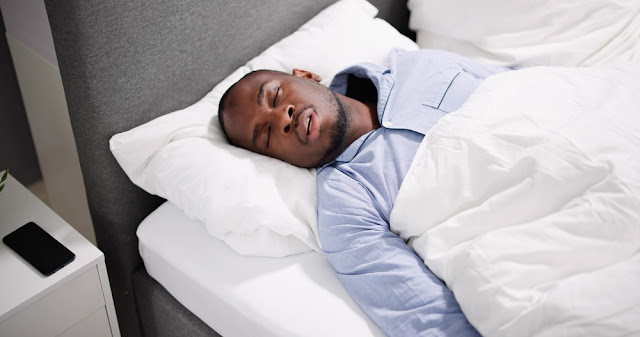Sleep apnea is a common problem that affects millions of people all over the world. If you don't fix it, it can make you sleepy during the day, make you tired, and cause other health problems. In this piece, we'll talk about five important ways to deal with sleep apnea and get a better night's sleep. So let's get started!
Understanding Sleep Apnea:
Before we get to the tips, it's important to know exactly what sleep apnea is. Sleep apnea is a disease in which you stop breathing or take short, shallow breaths while you sleep. These breaks can last for a few seconds and may happen more than once during the night. There are three main kinds of sleep apnea: obstructive sleep apnea, central sleep apnea, and complicated sleep apnea syndrome. Each type has its own reasons and ways of treating it.
Changes in lifestyle: Some changes in lifestyle can make the signs of sleep apnea much better.
Here are some ideas to think about:
a. Stay at a healthy weight: Being overweight can make sleep apnea worse because it puts more pressure on the lungs. Sleep apnea symptoms can be less bad if you keep a healthy weight through regular exercise and a balanced diet.
b. Sleep Position: Sleeping on your side instead of your back can help keep your airways open and lower the number of apnea episodes. Think about using a body pillow or other tools to help you sleep on your side.
c. Don't drink alcohol or take sleeping pills: Alcohol and sleeping pills can relax the muscles in the throat, which makes it more likely that the airways will close while you sleep. It's best to stay away from these things, especially right before bed.
Continuous Positive Airway Pressure (CPAP) Therapy: One way to treat severe sleep apnea is with CPAP therapy. It means you have to sleep with a mask over your nose or mouth. The mask is hooked up to a machine that sends a steady flow of pressurized air into the lungs to keep them open. To get the most out of CPAP, you must use it regularly and make sure the mask fits well.
Good sleep hygiene is important, especially for people with sleep apnea, because it can help them get a better night's sleep. Think about the following:
a. Keep the same sleep schedule every day, even on weekends: Go to bed and wake up at the same time every day. This helps keep your body's internal clock in sync and helps you sleep better.
b. Make a bedtime routine that helps you relax: Do things that make you feel calm before bed, like reading a book or taking a warm bath. Stay away from activities and electronics that are exciting because they can make it hard for you to fall asleep.
c. Optimize Your Sleep Environment: Keep your bedroom dark, quiet, and at a comfortable temperature to help you sleep. If you need to, you could use earplugs, eye masks, or a white noise machine.
Get help from a professional:
If you think you have sleep apnea or are having trouble sleeping for a long time, you should see a doctor right away. They can give you a thorough assessment, offer the right diagnostic tests, and give you personalized treatment options based on your condition.
Sleep apnea can be treated in a number of ways, including changes to your lifestyle, therapy choices, and good sleeping habits. By using the tips in this piece, you can take steps toward better sleep and a better sense of well-being in general. Remember that good sleep is important for a healthy, happy life.





No comments:
Post a Comment